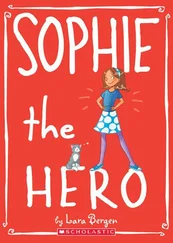Bob’s assistant had called his app “Dinner and a Movie,” but the company that developed it renamed it “Eat’n’Watch,” because they thought that “Dinner and a Movie” was too outdated and too limiting. Why not watch a movie while eating breakfast or lunch? “My thoughts exactly,” Regina had confessed to Vadik once.
You picked a movie or a TV program on Eat’n’Watch, then it suggested the best food to eat while watching it and helped you order it from a neighborhood restaurant. The app saved and studied your preferences too, so that after a few months of working together, it seemed to know you better than you knew yourself. And sometimes even better than you wanted to know yourself, thought Regina. Eat’n’Watch asked you to rate the shows and the food, but it never actually based its suggestions on your rating system. The algorithm was based solely on the frequency of your ordering a certain item or on the time you spent enjoying it. Eat’n’Watch got you what you truly liked, not what you wanted to think that you liked. For example, Regina would give five-star ratings to Bergman and Rohmer and healthy salads, but based on the frequency of her orders, Eat’n’Watch knew that she really liked pizza, hamburgers, the greasiest items on Chinese menus, and American TV series like Seinfeld, Friends, and Cheers.
“How about the TV series Blameless, about a mousy wife and mother secretly running a chain of adult-only resorts (Season 1, Episode 1), and the Lumberjack Special from Just Food on Leonard Street?” Eat’n’Watch was asking her now.
That shit and the Lumberjack? Really? Why do you think of me so meanly? Regina thought. She wasn’t even planning to have a big breakfast, yet the second the suggestion was made she realized that this was exactly what she wanted — some fast-paced, juicy, and brainless show, accompanied by a deliciously satisfying amount of sugar, salt, and fat.
She pressed the Okay button. That’s how effortless it was. All she needed to do was to turn on her TV and wait for the delivery person.
The problem was that Regina could never synchronize the time it took her to watch an episode with the time it took her to consume food. By the time episode one of Blameless ended, she still had one pancake, two strips of bacon, and some home fries left. She could just eat them in dumb silence like an animal, like a stupid zombie, or she could do the more civilized thing and turn on episode two. Regina chose to do the latter. Episode two was even better than the first episode, because that was when those blonde PTA bitches started to suspect that the main character was involved in something clandestine. Imagine Regina’s disappointment when she reached for a bacon strip in the middle of a very important scene and found out that there was none left. She clicked Pause. It was unthinkable to watch this shit for the sake of watching it. Or, rather, it was impossible to enjoy it without food. Regina thought of those Pavlovian dogs that started to salivate when they heard a bell, because they were used to hearing the bell right before the scientists brought them food. Physiological reflexes — blah blah blah. It was the same with her. Regina was so used to watching TV while eating, and eating while watching TV, that her mouth wouldn’t salivate unless there was something on the screen, and her brain wouldn’t accept video and audio stimulation unless she was eating. Eat’n’Watch had a solution — an excellent Cobb salad from Parsley, just around the corner. Regina sighed, added some extra blue cheese to her order, and pressed Okay.
She fell asleep in the middle of season three of Blameless and slept until six forty-five, when a phone call from Bob woke her up.
“I got held up,” Bob said, “but I’ll be home in ten minutes.”
Regina got off the sofa and surveyed the scene. The smell of kimchi permeated the room. There were crumbs on her bare legs and a gob of blue cheese was stuck in her hair. The coffee table was littered with plastic containers and dirty napkins. There were four huge plastic bags on the floor: Just Food, Parsley, Muriel’s Sweets, and Happy Wok. Infinite Jest, which had somehow ended up on the floor by the sofa, was stained with soy sauce. Regina was disgusted with herself. She felt sad and angry. She picked up the largest bag, which happened to be from Happy Wok, scooped all the trash along with the other bags into it, and pushed it down the garbage chute. Then she shoved Infinite Jest back onto the shelf, opened the balcony door to air out the room, removed her stained clothes and threw them into the laundry bin, and rushed into the shower.
Sergey had dozed off on the lower deck of the ferry and woke just as they were passing the Statue of Liberty. He wiped a trickle of drool from the corner of his mouth and stood up. The moldy-green figure was looming on his left, the skyscrapers moving closer, getting bigger, sturdier. The cloudy sky, the gray waves. Everything so solid and stern. Sergey dreaded going to the office. The rumors of huge layoffs at Langley Miles had been circulating for a while, but yesterday they actually announced that a large group of employees would be “let go” this week. He had good reason to worry that he would be fired today. His position as a business analyst was insignificant enough, and he had been hired not that long ago. He knew that the newest employees were usually the first to get cut.
Some of Sergey’s friends who worked at other places were happy to lose their jobs. The generous severance packages they received made it feel like a paid vacation. They would gather together for “unemployment brunches” and discuss their upcoming trips to Iceland, Peru, or other exotic locations. Vadik usually used the time and money granted by unemployment to go someplace new, find a new girl, and move into a new apartment. He would complain about his vagabond life, but it was hard not to envy him. Actually, Sergey would have enjoyed some free time so he could work on his linguistic algorithms for Virtual Grave. That fiasco with Bob had showed him that he wouldn’t be able to sell Virtual Grave as a mere idea; what he needed was a working prototype. But that would require some serious time and effort, and Vica would never let him devote himself to working on the app full-time. She treated each of his unemployment periods like a disease from which he should be cured as soon as possible. Every time he lost his job — he always had more or less the same junior position in various investment banks — she made sure that he spent every second of every day looking for a new one.
Sergey took his smartphone out of his pocket and opened Facebook. In his fourteen years in this country he hadn’t made a single American friend. Even most of his Facebook “friends” were Russians. He rarely posted anything himself, but he read his friends’ posts avidly, often with masochistic pleasure. They published books, founded literary magazines, fought against the regime, participated in antigovernment protests on Bolotnaya Square. One of his friends, a left-wing journalist, had been severely beaten by pro-Putin thugs. Sergey caught himself envying even him. They seemed to have real lives, lives pulsating with excitement and meaning. They had lives he could have had if he’d stayed in Russia. Why, why, on earth had he been so sure that he’d make it here?
Sergey shivered from the wind. It was an unusually cold day for early October. He tied his scarf tighter but didn’t move away from the railing. A few years ago, a Staten Island ferry just like this one had crashed into a pier. Sergey wasn’t on it, but he’d read about the accident. The pier ripped into the ferry’s side and tore into the main deck, where many of the passengers were gathering, about to disembark, just like they were now. Sergey imagined that a similar accident was about to happen. He imagined the mangled metal, the blood, the screams. He imagined himself flattened against the ferry’s inner wall. Dead. Free of responsibilities. Free of judgment. Free to relax. He imagined Vica’s grief with some satisfaction — they were barely talking after he had “brutally humiliated” her at Vadik’s housewarming. In the three months since then, the atmosphere at home had turned so hostile that Sergey felt that right now his death was the only thing that would warm Vica to him. But the idea of Eric being fatherless, unprotected, lost, made Sergey sick to his stomach. That was one of the main points of Virtual Grave for him, to provide some posthumous guidance or even encouragement to a person’s loved ones.
Читать дальше












